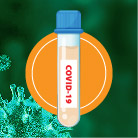≡

Too young for this: Facing Colorectal Cancer at a much younger age

Dr Clara Wu
| Director, Emergency Medicine Centre, and Consultant in Emergency Medicine |
Doctor's Blog
Helicobacter pylori infection is a major cause of peptic ulcer and gastric cancer?
Accompanied by her husband, Mrs Wang was rushed to the Emergency Centre in the middle of the night with severe stomach ache. Mrs Wang had all the symptoms of upper gastrointestinal inflammation, including belching, flatulence, chest tightness, nausea and vomiting. After diagnosis and initial treatment, Mrs Wang was prescribed with medication and felt much better.
From Mr Wang, we learned that his wife has long history of stomach disorder. Mrs Wang has a habit of purchasing over the counter pain relievers to manage her stomach discomfort and seldom seek advice from Specialists. Mrs Wang’s stomach ache might subside but quite often it would reappear after discontinuation of pain relievers. Ever since their daughter was born, Mrs Wang had to struggle between work and family, and her stomach ache seemed to have worsened and occurred more frequently.
As advised, Mrs Wang underwent endoscopy and confirmed with Helicobacter pylori infection. Mrs Wang was extremely concerned that Helicobacter pylori carriers have a five-fold increased risk of developing gastric cancer. Mrs Wang worried that other family members; especially her young daughter might have already been infected as Helicobacter pylori were highly infectious upon contact, even for pets like cats and dogs. Mrs Wang was not sure what other precautionary measures should be taken at home and if she should dine alone and sleep in a separate bedroom.
Modern life and work pressure often culminate into stress, and stress can result in all kind of stomach disorders like stomach ache, gastritis and other gastrointestinal diseases. Very often people with stomach disorders would rely on over the counter pain relievers instead of seeking professional diagnosis. However, recurrent stomach ache might very likely be caused by Helicobacter pylori. Studies even showed that Helicobacter pylori and ulcers are closely related. But since there are no obvious symptoms, very rarely patients infected with Helicobacter pylori know they are carriers.
Whilst the principal route of transmission remains inconclusive, those living in poor environment or unsanitary conditions are more likely to contract the bacterium through contaminated food source, or via direct contact with saliva, fecal matter and body fluids of Helicobacter pylori carriers. Helicobacter pylori are more common in emerging countries and lower in developed countries with up to 60% -80%, and approximately 40% of the populations being infected respectively. Helicobacter pylori infection are often more common in men than in women, and approximately half of the Hong Kong's population in those over 40 years of age is Helicobacter pylori carriers. In Hong Kong, the number of Helicobacter pylori infection appears to be decreasing in recent years, but prevalence of antibiotic resistance is on the rise.
Although epidemiological studies suggests that sharing food with Helicobacter pylori carriers would increase the risk of infection, but infection really depends on amount of bacterial adhesins and the immune response of an individual. Helicobacter pylori infections tend to occur in people with a weakened immune system. Use serving chopsticks and avoid sharing kitchen utensil with someone that has been infected can help preventing the spread of Helicobacter pylori. Although Helicobacter pylori infection is present in 70 to 80% gastric cancer patients, only a small number of them will eventually develop gastric cancer.
Urea breath test is a rapid diagnostic procedure which could be used to identify infections of Helicobacter pylori. Helicobacter pylori positive patients are recommended to undergo eradication therapy. For further information on gastrointestinal diseases, please visit "Union Gastrointestinal Diseases Centre" (http://www.union.org/gicentre/index_e.htm) for detail.
By Dr Clara Wu
Head, Department of Emergency Medicine, and Consultant in Emergency Medicine
Union Hospital








